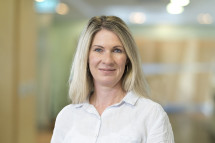Time for parties to step up: Where are the policies aimed at helping children?
Too many children in New Zealand do not have their rights met, says Save the Children’s Jacqui Southey.
OPINION: It was a bitterly cold morning in Geneva the day New Zealand’s government delegation met with the UN Committee on the Rights of the Child to measure our nation’s progress.
Alongside government representatives, child rights advocates including Save the Children, the Children’s Rights Alliance, the Office of the Children’s Commissioner and the Human Rights Commission were also present, looking to observe and monitor the two-day hearing. On the agenda were serious issues for Aotearoa’s youngest citizens – including violence against children, enduring levels of poverty particularly for groups of children including Māori, Pasifika and disabled children, care and protections issues, and the emergence of climate change and the need for children to be central to policies to mitigate the impact.
The Committee’s concluding observations released two weeks later acknowledged important advancements in New Zealand’s progress on realising children’s rights, noting achievements such as the Child Poverty Reduction Act, the ratification of Optional Protocol Three enabling children to take complaints directly to the committee should their rights be breached, and improvements to care and protection and youth justice systems.
But despite the progress, too many children in New Zealand do not have their rights met. The report includes 50 recommendations calling on the Government to better address children's rights at home, with seven focus areas where "urgent measures must be taken". These priority areas are well known: non-discrimination, violence against children, children deprived of a family environment, children with disabilities, standard of living, children belonging to minority or indigenous groups, and the administration of child justice.
Yet even with a clear roadmap, the current policies being promised in the election lead-up will have little impact for children and their families struggling the most. Instead, politicians are taking a reactive approach.
Take youth crime, for instance. It's been a hot topic with a number of headline announcements – everything from boot camps and coining a new term, the Young Serious Offender, to building more prison-like residences for children. But despite the political rhetoric and media interest, the reality is that just 5% of children are in conflict with the law. The real disappointment of all the policy commitments is that not one of them is looking to address the real drivers of youth crime: poverty, substance abuse, exclusion, and enduring cycles of violence.
Or take paid parental leave. A new report from the Parental Leave Register shows New Zealand is in the bottom quartile of developed countries for primary carer parental leave, and one of only three that does not legislate paid leave for partners. Those same parents are trying to access one of the most expensive childcare systems in the world (as a percentage of income) with the report showing parents earning the average wage with two children in full-time childcare likely spending more than 30% of their income on daycare.
Children themselves have good insights into what the country needs to be a better place. Tamariki participating in our recent children’s election booth in Tāmaki Makaurau told us they’re concerned about New Zealand’s environment and the impact on our animals. Others worried whether families had enough money and healthy food to eat. Safe communities and improved education options were also recommendations from participating children.
Child poverty and social housing policy commitments were hard won in previous elections and critically needed after decades of punitive welfare policies and a housing crisis that saw the emergency housing waitlist climb to over 25,000 applicants. Yet these crises have not gone away.
If we’re going to tackle the longstanding challenges for children such as child poverty, violence and neglect, or ensuring the best possible start for our under 5s, then we need decision-makers to put children’s needs at the top of the political agenda. As voters, we need to make it clear that children matter.
Lift the rate of the Child Disability Allowance to levels that will relieve disabled children and their whānau of the burden of poverty. Ensure that our littlest children, many who spend long hours in ECE, have access to affordable, high-quality care, starting with reducing child-to-teacher ratios for 2-year-olds and under.
Let’s continue on the path of removing unnecessary plastics that are harming our environment, and act on children’s voices calling to ban single use plastics and excessive plastic packaging.
Let’s make healthy and affordable homes a reality.
One in five children go to school hungry. Let’s build on Ka Ora Ka Ako – our Healthy School Lunches programme.
Create liveable incomes for everyone, right the wrongs of the past, and make real change for whānau who are struggling the most.
Let’s make child rights real for every child in New Zealand, and become that country where it’s the best place to be a kid – so that the next time we stand before the UN Committee on the Rights of the Child, we can be proud of our progress as a nation.
Jacqui Southey is Save the Children New Zealand’s advocacy director.

*Originally published in Stuff

